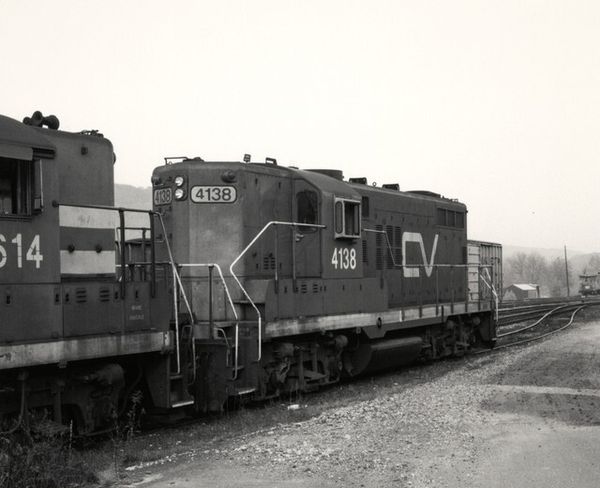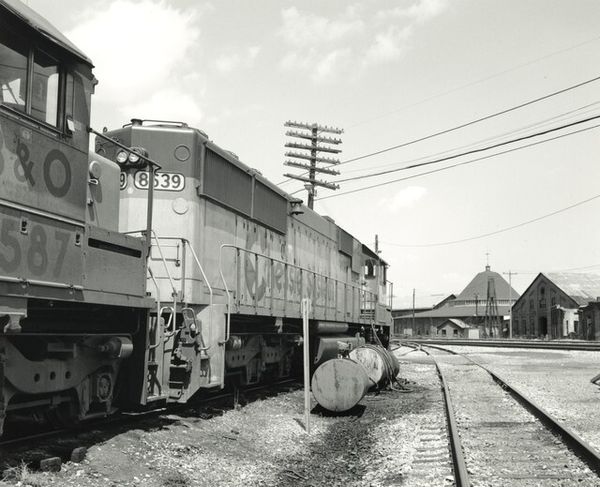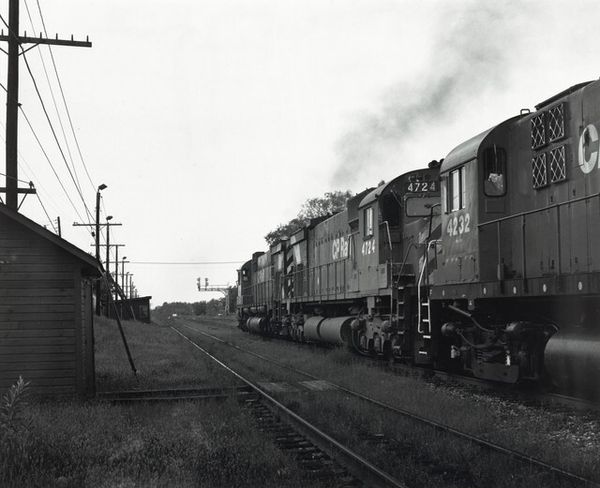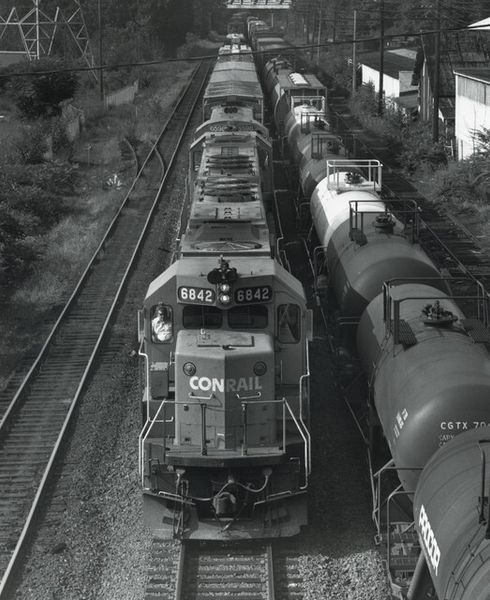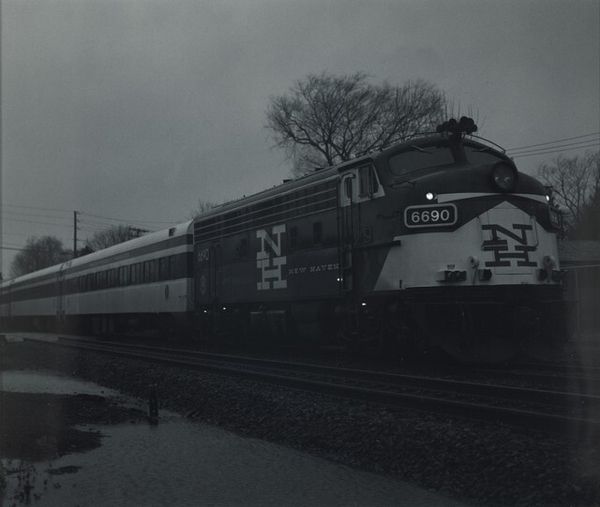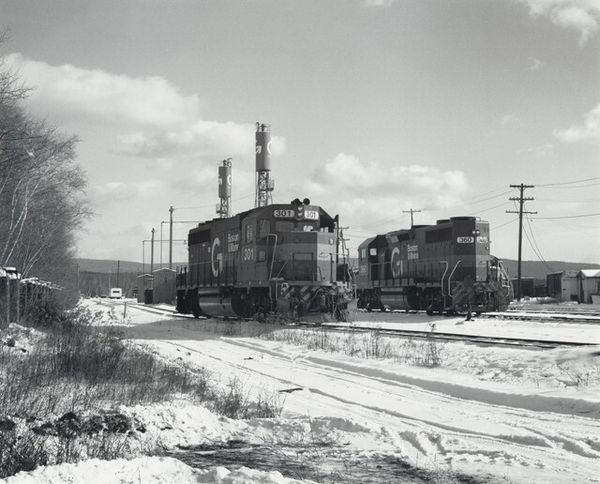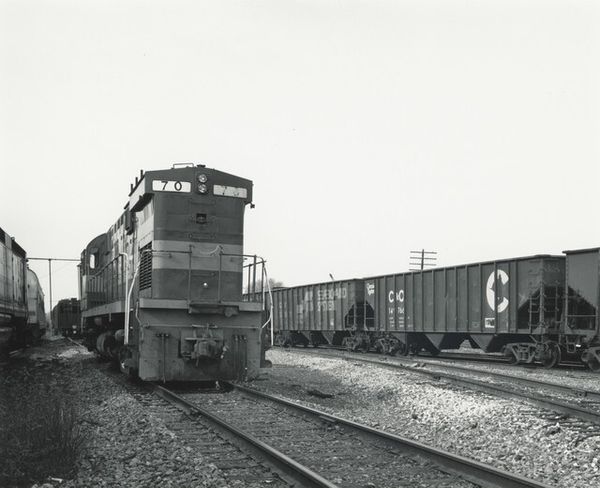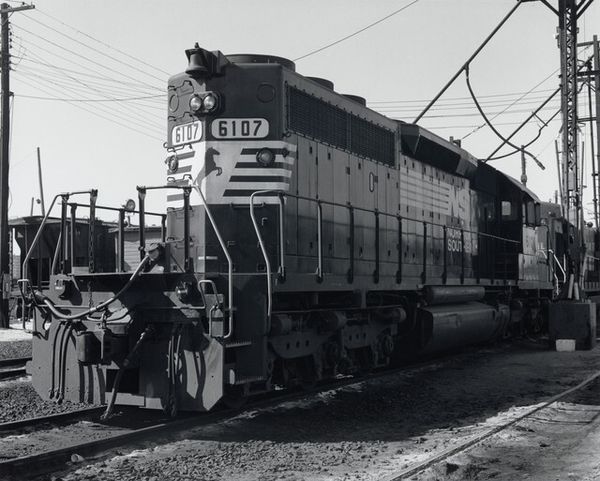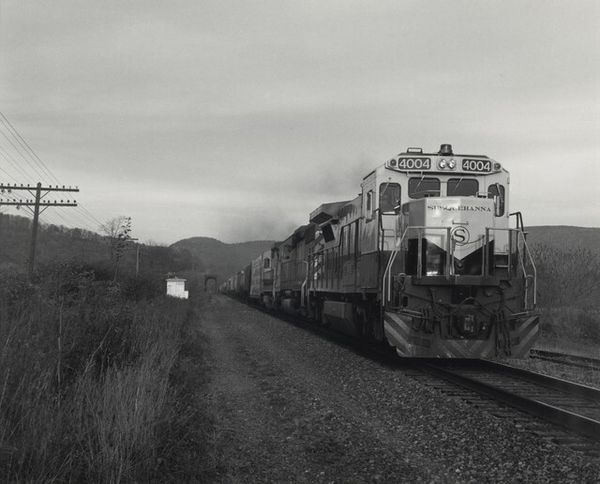
photography, gelatin-silver-print
#
photography
#
black and white
#
gelatin-silver-print
#
monochrome photography
#
cityscape
#
monochrome
#
modernism
#
realism
#
monochrome
Dimensions: image: 45.7 × 55.9 cm (18 × 22 in.) sheet: 48.6 × 58.7 cm (19 1/8 × 23 1/8 in.)
Copyright: National Gallery of Art: CC0 1.0
Editor: James Welling's 1991 gelatin-silver print, "4:55 PM Departure, South Station, Boston, Massachusetts," presents a striking, almost confrontational view of locomotives against the backdrop of a stark cityscape. It's incredibly… still. What do you see in this piece? Curator: I see a deliberate commentary on industrialization and its impact on the urban landscape, filtered through a lens of social alienation. The coldness of the black and white, combined with the imposing scale of the trains, evokes a sense of power but also a feeling of isolation. Who are these trains serving, and who is left behind? How might the decline of industry affect the people? Editor: Isolation… that resonates. It's a public space, a transportation hub, but the emptiness is palpable. The trains almost look like monuments rather than vehicles. Curator: Exactly. Welling is inviting us to question the narratives we've constructed around progress and technology. The black and white photography nods to historical documentary styles but without any of the people usually featured. Consider how these hulking machines reflect a power dynamic, and even gender roles. What narratives are reinforced here? Editor: I guess it's easy to romanticize trains, but you're right. It feels critical. It highlights this stark contrast between this industrial behemoth, nature, and the humans they should serve. Curator: Think about the labor required to build these machines, to maintain them, to operate them. Consider the communities disrupted by their routes, the pollution they generate. The image serves as a reminder that technological advancement is never neutral. Editor: I see that. It's a good reminder that art, even in its most subtle forms, can engage in these really critical conversations about power. I had just focused on the formal aspect, but it definitely challenges me to dig deeper. Curator: And it invites us to consider our place within these ongoing dialogues, and consider our responsibility toward our communities and the narratives being imposed on them.
Comments
No comments
Be the first to comment and join the conversation on the ultimate creative platform.
